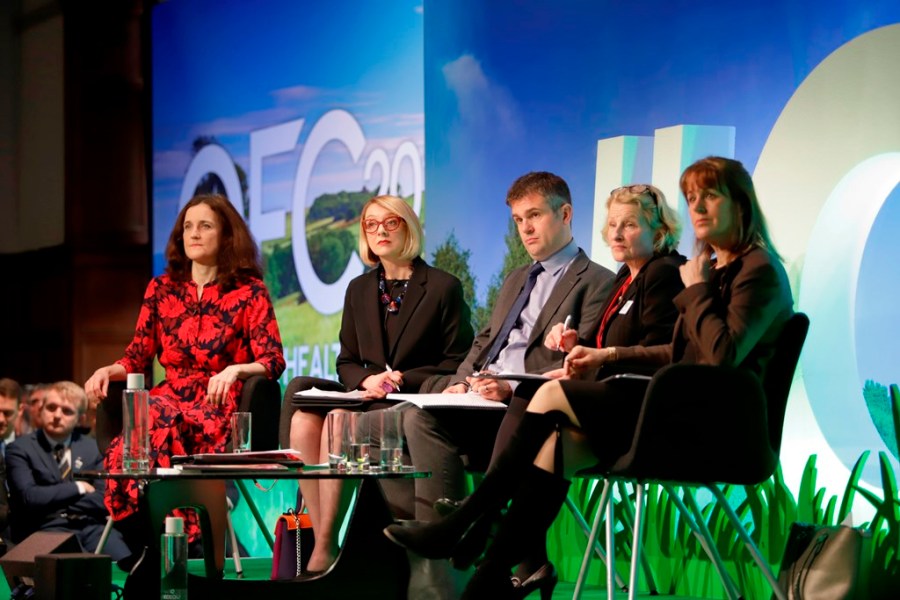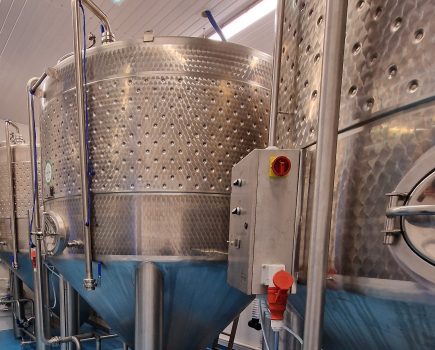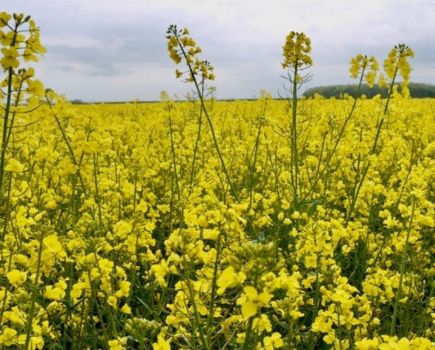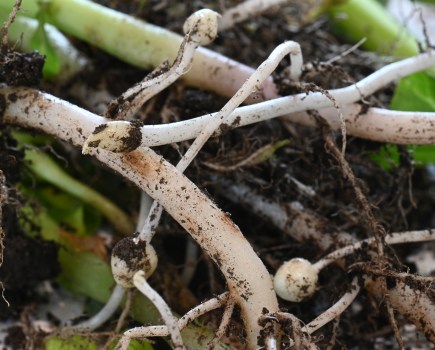With Britain now outside the EU, a row has erupted over food standards and how these may be compromised in a trade deal. Tom Allen-Stevens tracks its progress to date.
Pressure is building on the UK government to bring in laws to protect food standards, now that the UK sits outside the EU. The issue over free trade and the effect this would have on UK food and farming standards dominated much of the discussion at conferences and in mainstream media throughout January.
A number of sessions of the Oxford Farming Conference on 8 Jan set the scene for what became an emotively charged topic. In a curious twist, it was NFU president Minette Batters who delivered the first address of the politics briefing, rather than the Defra Secretary of State, and she put “world-class, sustainable food production” centre stage.
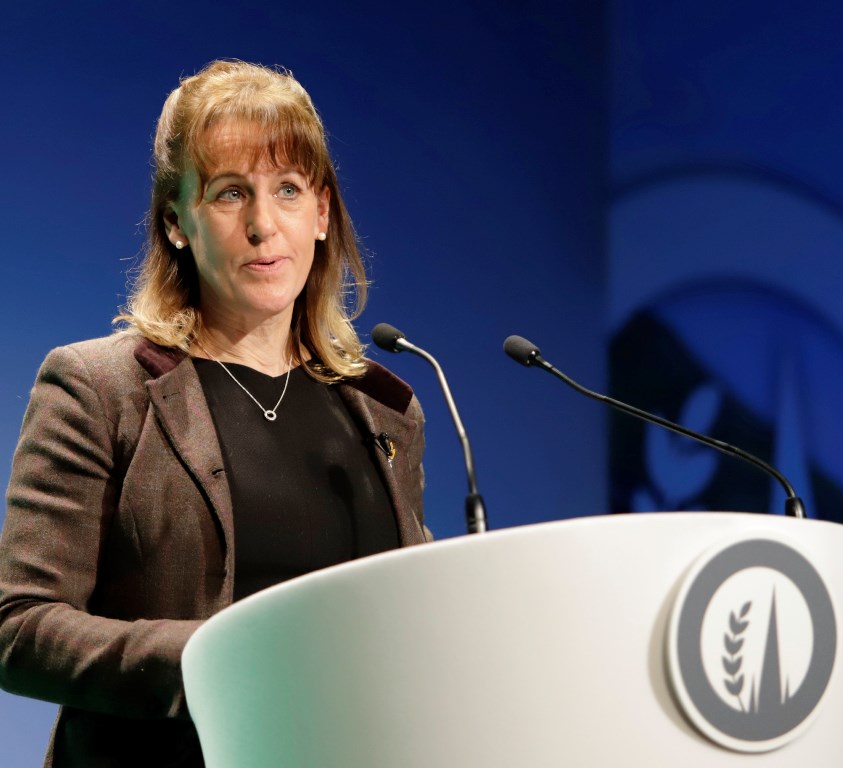
Minette Batters delivered an opening salvo at the Oxford Farming Conference, stressing the importance of food standards.
“There is nothing more important to our economy, to our health, to our environment than the very food that we eat,” was her opening salvo.
She said 2020 would be about “getting Brexit right”, noting that 12 months earlier she had committed UK Agriculture to achieve net zero carbon emissions by 2040. Minette pointed to the COP26 Climate Change talks due to take place this November in Glasgow, urging the government to lead the world in pioneering solutions.
“We must grasp this moment with both hands to lead the recovery of our planet. I passionately believe UK Agriculture can, and is ready to help lead and provide the solutions that are needed.”
She said farmers were “up for the challenge” and reeled off “inspirational” examples of those who are already delivering “world-class sustainable farming”.
Minette then turned her focus to food production. “Here we are, farming in NW Europe, the jewel in the world’s crown for food production. There is a moral imperative on us that we continue to produce food in the UK.”
She said it was time to move on from the meat versus plant-based debate and focus on a healthy, balanced diet – “There are no bad whole foods, there are only bad diets” – and called for a “horticulture revolution” to bring about more home-sourced fruit and vegetables. This would relieve the pressure on countries suffering from “acute” water scarcity that currently supply the UK. Government should invest in infrastructure to enable this, she said.
Minette ended with three questions for the Secretary of State: “Will this government work with UK farmers and growers to drive forward climate and water-friendly food production? Will you use the powers contained within the Agriculture Bill to provide a level of financial stability and improve the functionality of our supply chain so that markets work for farmers and consumers?
“And will the government pull together a commission on food standards to scrutinise trade deals and ensure we don’t end up with a two-tier food system and import foods that would be illegal for our farmers to produce here? That is something the NFU will never accept.”
CEO of Friends of the Earth Craig Bennett warned against “an epic fail”, as he sees it. “Trade trumps everything,” he said. “We could have the best system here in this country, but if we do trade deals with other countries that allow imports of food to lower standards than we allow here, that will undercut our farmers and be devastating for this industry.”
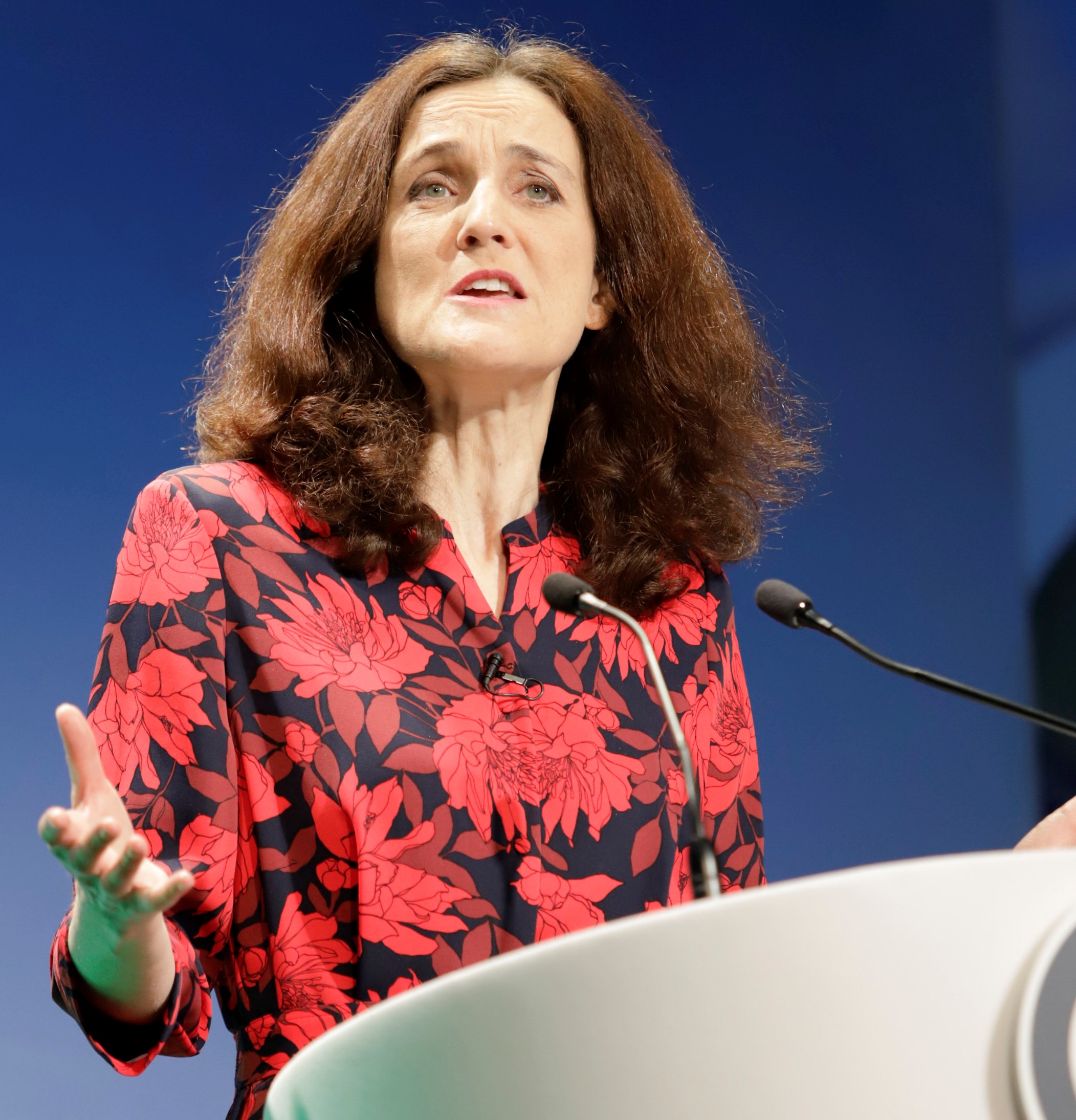
Theresa Villiers said the government would be prepared to walk away from trade negotiations if that is in the national interest.
Defra environment secretary Theresa Villiers responded by pledging to protect the nation’s £47bn food market. “We will not imperil our domestic and international reputation built on quality, and grounded in our shared national values. We will not dilute our strong environmental protection, we will not dilute our high standards of food safety and animal welfare,” she said.
“This Government will defend our national interest strongly and will be prepared to walk away from trade negotiations if that is in the national interest.”
Brexit had provided a “timely reminder” of the importance of food security, she continued. “In an uncertain world, food security is an issue we must take very seriously, and this is a point I will always emphasise around the Cabinet table.”
But it was food standards on which Theresa was repeatedly pressed during questions. Her assurances that the government would not allow into the country food produced to standards not currently accepted in the UK were met with scepticism. When OFC director Anna Hill asked the 600 delegates how many were reassured the government will protect their interests when carrying out a trade deal, for instance with the US, not one of them raised their hands.
Furthermore, Minette stressed her worry was not over whether current legislation would prevent entry of food such as chlorine-washed chicken and hormone-treated beef – EU laws that are now transcribed into UK law prevent that. “My concern is the legislation that will set how we trade going forward. There are no plans to transfer that protection into either the Trade Bill or Agriculture Bill.”
Red line
Henry Dimbleby, Defra’s National Food Strategy lead, noted the UK’s responsibility not to export its carbon footprint to other countries. “The production-only climate change targets make no sense,” he said. “What is the point of doing an enormous amount of work in creating a net zero farming economy here if we then just import the carbon from other countries? It is a red line that as a society we must defend vigorously.”
In the week following the conference, The Agriculture Bill returned to the House of Commons, receiving the second of its two readings in the first week of Feb, following the failure to complete its passage through Parliament last year.
Among additions to the Bill are a push for food production, in an environmentally sustainable way, and a requirement to report on food security at least once every five years. But there’s still no legislation to protect food standards during forthcoming trade negotiations.
This was picked up by BBC reporter Tom Heap during an interview with Theresa for Countryfile, to which she responded: “we will be using our trade negotiations to make sure that only food acceptable in our market will be allowed to come into our market.
“We will not be importing chlorinated chicken. We will not be importing hormone-treated beef. Both of those are illegal under EU law, which we are importing into our domestic system. There are legal barriers to their import and those are going to stay in place.”
But the assurance isn’t enough for Minette, who asked Government minister James Cleverly during a recent BBC Question Time, “The point is about imports, where will that legislation [to protect standards] sit? It’s not in the Agriculture Bill. Otherwise we just allow food in that would be illegal to produce here.”
The pressure has culminated in a letter to Prime Minister Boris Johnson signed by 60 farming and environmental organisations which, in a rare moment of unity, have come together to urge specific actions:
- The government should enshrine into The Agriculture Bill its commitment that in trade negotiations, it will not compromise on the UK’s high environmental protection, animal welfare and food standards.
- A trade and standards commission to ensure the government sticks to its commitments.
- The government should enable the UK to show leadership in pioneering a new type of global trading system that moves away from ever-cheaper goods to one based on more sustainable models of production and consumption across the world.
The debate on standards for food imports continues.

